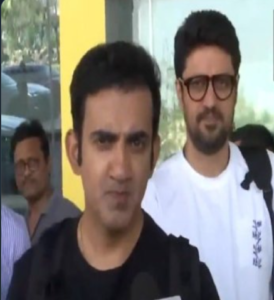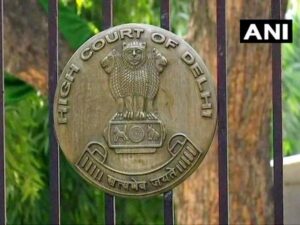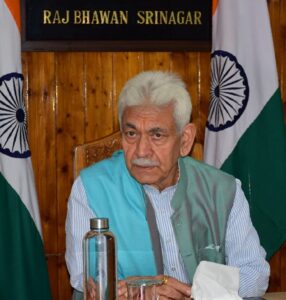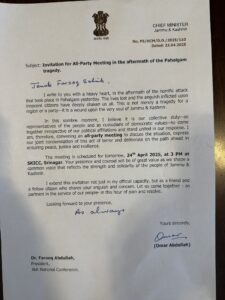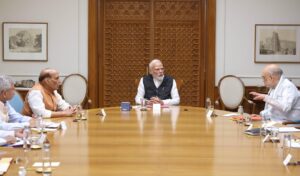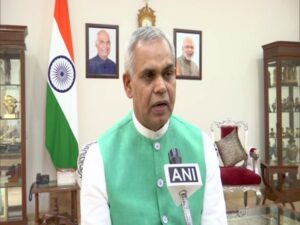Setback to CM Siddaramaiah as HC dismisses his petition challenging Guv’s order
Bengaluru, Sep 24 (PTI) In a setback to Chief Minister Siddaramaiah, the Karnataka High Court on Tuesday dismissed his petition challenging Governor’s approval for investigation against him in a site allotment case.
The Chief Minister had challenged the approval given by the Governor Thaawarchand Gehlot for an investigation against him in the alleged irregularities in the allotment of 14 sites to his wife by the Mysuru Urban Development Authority (MUDA) in a prime locality.
After completing the hearings on the petition in six sittings from August 19, the single judge bench of Justice M Nagaprasanna on September 12 reserved its verdict. It had also extended its August 19 interim order directing the special court for people’s representatives that was slated to hear complaints against him in the case, to defer its proceedings till the disposal of the petition.
“The facts narrated in the petition would undoubtedly require investigation, in the teeth of the fact that the beneficiary of all these acts is not anybody outside but the family of the petitioner. The petition stands dismissed,” Justice Nagaprasanna ruled.
He said: “interim order of any kind subsisting today shall stand dissolved.”
The Governor on August 16 accorded sanction under Section 17A of the Prevention of Corruption Act, 1988 and Section 218 of the Bharatiya Nagarik Suraksha Sanhita (BNSS), 2023 for the commission of the alleged offences as mentioned in the petitions submitted to him by complainants Pradeep Kumar S P, T J Abraham and Snehamayi Krishna.
On August 19, Siddaramaiah moved the High Court challenging the legality of the Governor’s order.
In the petition, the Chief Minister submitted that the sanction order was issued without due application of mind, in violation of statutory mandates, and contrary to Constitutional principles, including the advice of the Council of Ministers, which is binding under Article 163 of the Constitution of India.
Siddaramaiah sought quashing of the Governor’s order contending that his decision is legally unsustainable, procedurally flawed, and motivated by extraneous considerations.
Reading out the summary of findings, Justice Nagaprasanna said, the complainants were justified in registering the complaint or seeking approval at the hands of the Governor.
Stating that the approval under the section 17 A of PC Act is mandatory in the fact situation, he said: “Section 17A nowhere requires a police officer to seek approval in a private complaint registered under section 200 or 223 of BNSS against a public servant for offences punishable under the provisions of the Act. It is the duty of the complainant to seek such approval.”
The Governor in the normal circumstance has to act on the aid and advice of the council of Ministers as obtained under the Article 163 of the Constitution of India, the Judge said, “but (the Governor) can take independent decisions in exceptional circumstances, and in the present case projects one such exception.”
“No fault can be found with the Governor exercising the independent discretion to pass the impugned order; it would suffice if the reasons are recorded in the file of the decision making authority, particularly of the high office, and those reasons… form part of the impugned order. A caveat reasons must be in the file. Reasons for the first time cannot be brought before the constitutional court by way of objections,” he added.
The gubernatorial order nowhere suffers from want of application of mind, the Judge further said, “It is not a case of not even a semblance of application of mind by the Governor, but abundance of application of mind.”
The grant of an opportunity of hearing prior to the approval under section 17A is not mandatory, he further said. “If the authority chooses to do so, it is open to it.”
“The decision of the Governor of the alleged hot haste has not vitiated the order. The order is read to be restrictive to an approval under section 17 A of the (PC) Act and not an order granting sanction under section 218 of the BNSS,” he added.
As the judge dismissed the petition, senior counsel Abhishek Manu Singhvi who appeared for Siddaramaiah, said, “the matter related to dates of 1990’s, and the complaint if filed now..” as he requested the bench to consider “a two weeks’ stay on this.”
Responding to this, the Justice Nagaprasanna said, “I can’t stay my own order….The petition stands dismissed. Interim order of any kind subsisting today shall stand dissolved.”
While noted lawyer Abhishek Manu Singhvi and Prof. Ravivarma Kumar had appeared for Siddaramaiah, Solicitor-General of India Tushar Mehta represented the office of the Governor. Advocate General Shashi Kiran Shetty also made his submissions.
Senior Advocates Maninder Singh, Prabhuling K Navadgi, Lakshmi Iyengar, Ranganath Reddy, K G Raghavan, among others made submissions on behalf of the complainants (respondents) who had sought the sanction for investigation against Siddaramaiah.
In the MUDA site allotment case, it is alleged that compensatory sites were allotted to Siddaramaiah’s wife B M Parvathi in an upmarket area in Mysuru, which had higher property value as compared to the location of her land which had been “acquired” by the MUDA.

